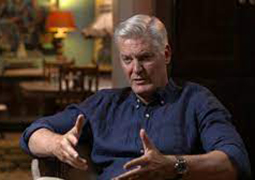
Following the damning allegations made by the former Eskom CEO, Mr Andre de Ruyter, in a television interview, a member of the Standing Committee on Public Accounts (SCOPA), Mr Bheki Hadebe, felt compelled to initiate a motion in the committee to invite him to expand on his revelations.
Mr Hadebe was particularly interested in Mr de Ruyter’s allegation that state capture is traversing throughout the body corporate of Eskom with impunity, to the point that no control, investigation nor disciplinary action is effective against it. Mr Hadebe pointed out that what Mr de Ruyter described is “… much worse than what we knew as a committee”. It is on these grounds that his motion is founded, he said.
“We have had oversight visits at Eskom and called him and the board to appear before us, but it was for the first time for some of us to hear the material irregularities he ventilated in public recently. Worse of all, he further claimed that Eskom could not be saved and there’s no need to do so because the damage is not repairable.”
It is on this basis that Mr Hadebe proposed that the committee evoke section 56 of the constitution to summon anyone who can assist it to perform its function of safeguarding public money. These allegations cannot be left unchallenged, said Mr Hadebe.
The committee would then be able to ascertain if Mr de Ruyter acted in line with the Public Financial Management Act, which “affords the accounting the duty and responsibility to put effective measures to deal with any criminal conduct. Because according to this Act, he had a duty to protect and manage public assets and report any wrongdoing to us and other relevant authorities.” Mr Hadebe also wants to know why Mr de Ruyter did not report these allegations of orchestrated criminality to the committee.
This motion is not meant to cast aspersions against Mr de Ruyter, but will grant him an opportunity to explain why he never informed the committee of these allegations, Mr Hadebe said. He also emphasised that other oversight state entities and law enforcement agencies investigating fraud and corruption at Eskom should be held accountable.
Mr Hadebe also wants to know why the Auditor-General has not flagged the R1 billion fraud occurring at Eskom every month, as alleged by Mr de Ruyter in the interview, and what this says about Eskom’s own internal controls, supply chain and procurement processes and systems.
According to Mr Robert Lees, another committee member, “We should not be seen to be judging the former CEO. “For we can’t judge his actions or non-action without having given him an opportunity to hear him out. Let’s invite him to talk to us and to share with us any information at his disposal.”
Another committee member, Mr Mogamad Paulsen, said it is one thing to invite the former CEO of Eskom to appear before the committee, but beyond that, the enforcement agencies currently conducting investigations into Eskom have a duty and responsibility in this regard. “… [W]e would have failed if we don’t ensure that the National Prosecution Authority and related law enforcement agencies fulfil their duties and legal obligations,” he said.
Another member of the committee, Mr Nthako Matiase, said even if the former Eskom CEO is invited by the committee, he would tell the committee what it knows already. The criminal cartels that are depleting Eskom financial resources are “linked to the structure that determines who gets which tender”. He went on to allege that the former Eskom CEO is one many deployees of the ruling party. “Let him come and tell the nation what he knows,” added Mr Matiase.
According to the Chairperson of the Committee, Mr Mkhuleko Hlengwa, what Mr de Ruyter said on TV remains mere allegations. He must come and explain his assertions and he cannot mislead the committee because what he says would be under oath. Furthermore, what Mr de Ruyter said in his interview “opened a door to either affirm or contradict what he said here before this committee on numerous occasions”.
Mr Hlengwa said it would be futile to have Mr de Ruyter appear alone when the allegations he made implicate various stakeholders critical in the value chain of Eskom. Given that, he went on to suggest that perhaps an inquiry into Eskom would be an ideal route to take to get to the bottom of its deepening historical graft. Nonetheless, listening to the former CEO would help the committee’s investigations into the allegations. A consensus was therefore reached that he should appear before the committee. A determination on the nature of his appearance will be subject to the terms of reference of the committee’s proposed inquiry.
Abel Mputing
9 March 2023

